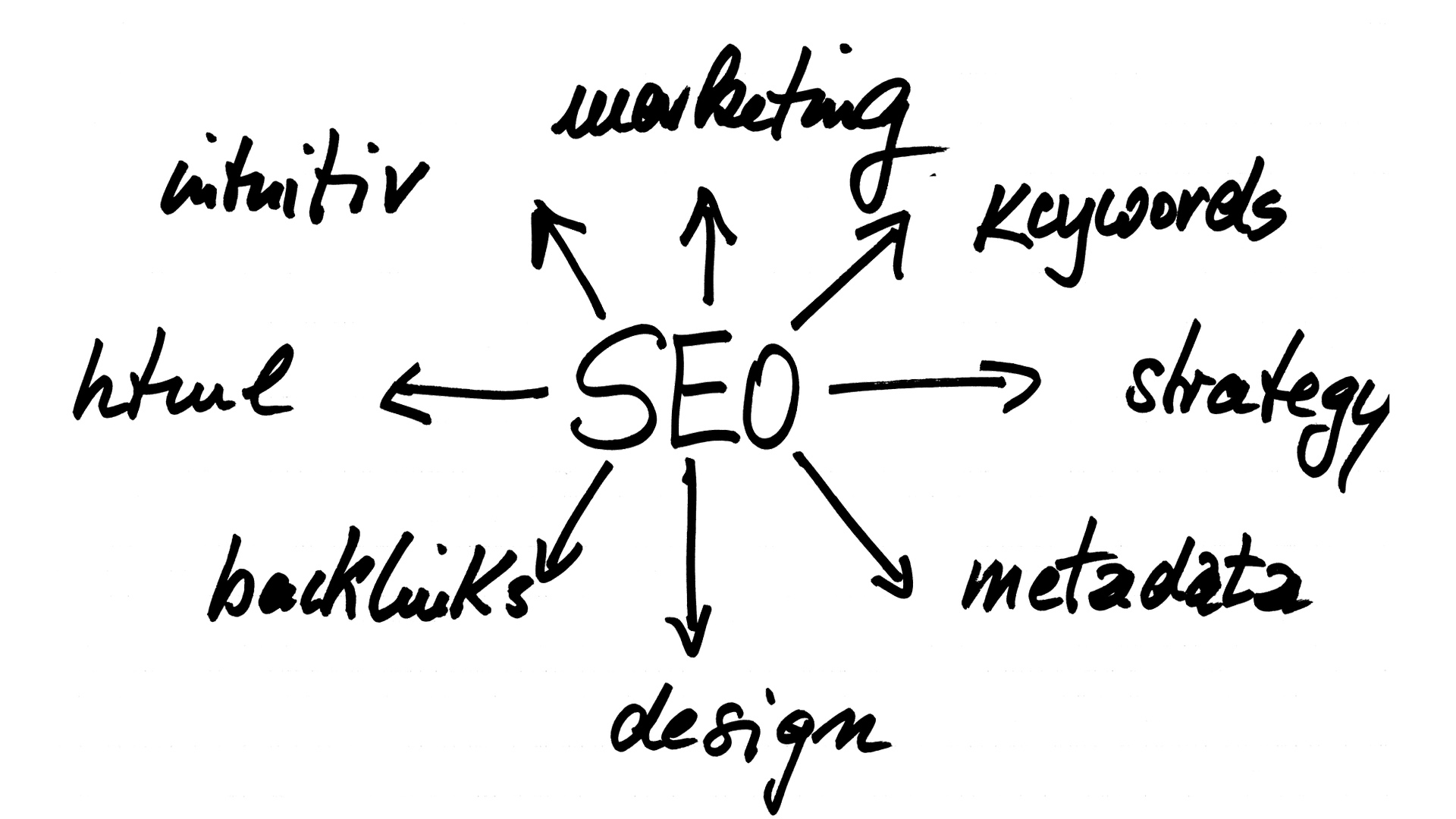What is metadata?
Learn how metadata describes what your documents contain in a machine-readable format and how to use it in website SEO efforts


What is metadata?
Metadata is data that describes other data, and it’s used extensively in all forms of computing. In the context of websites, the principal purpose of metadata is for search engines to be able to understand what type of information a web page contains. All the best website builders, therefore, enable you to edit the metadata of your web pages.
What does metadata do?
- Defines a topic and description of a web page that search engines can easily understand.
- Sets how the web page will be displayed in search engine results.
- Offers alternative text descriptions for images, making websites accessible to the visually impaired.
- Uses a standard format so third-party tools can process and store the data.
- Helps ensure your web pages appear high up in relevant search engine results.
How businesses can use metadata
Website marketing
By defining metadata for all website pages, content creators, businesses, and web developers signal what their pages contain to search engines and other software tools.
Every website builder allows you to edit the meta tags of all of your pages. You can set the title and description of each of your web pages by editing their respective meta tags.
Meta tags play a more minor role than they used to in defining at what position a web page will appear in search engine results pages (SERPS), but they are still often used by search engines to set the title and description as they appear in the search engine results.
By including an enticing title and a strong call-to-action (CTA) in the descriptions of their web pages, content creators can improve the click-through rate (CTR) to a website, meaning more potential customers will see their material.
Social media marketing
Metadata can also be used by those running social media. With the proper title, description, and keywords metadata on posts and ads, social media sites are better able to categorise and target them. This means posts and ads developed by social media marketing teams will appear in front of more of the types of people who will be interested in seeing them.
Organisation and data analytics

Metadata allows developers to add any descriptors to data without changing the information itself, which opens up a lot of convenience and power.
Sign up today and you will receive a free copy of our Future Focus 2025 report - the leading guidance on AI, cybersecurity and other IT challenges as per 700+ senior executives
Because metadata describes other data in a machine-readable way, departments such as IT can use metadata to organise data better. Metadata on the contents of files can be stored in a database, for example, so that the file contents can be quickly searched through.
Metadata can also be used to see which content is being accessed most frequently so systems can be optimised. Stored metadata on web pages and customer behavior can be used in data analytics, allowing companies to see what’s driving customer engagement and sales and adjust their strategies accordingly.
Features and benefits of metadata

Metadata adds supplemental information to data
Metadata adds some description to data without changing the original data. This can be used in a wide variety of applications, from categorising web pages to recording who last accessed a database.
For a digital photo, besides the image data itself, metadata is often included that details the author, date taken, date modified, and even the camera model used.
Website metadata makes web pages easier to read for search engine crawlers
Search engines like Google and Bing use crawling tools to find all the web pages on the World Wide Web. Their job is made easier if your pages include descriptive metadata that informs the crawler what the pages and images refer to. With good metadata, your web pages will be correctly categorised on search engines.
Images with descriptive metadata make for a more accessible site
People who are visually impaired often use alternatives to web browsers to read websites. Without metadata on images, these tools cannot accurately convey to the user what is on the screen. By adding descriptive text metadata to images, your website will be better understood by people who are visually impaired.
Including image metadata also means your site’s images will appear in image search engines. This can result in more traffic coming to your website.
A website with good metadata will generally be ranked more highly in SERPS
Search engines like Google prefer websites that offer visitors a good experience. They will typically rank well-designed websites higher up in search engine result pages. Adding metadata to your pages and images is one way to follow website best practices, resulting in a boost in the SERPS.
Much of search engine optimisation (SEO) is performed with this single goal of higher page rankings in mind. Becoming one of the top three results for an important search phrase can mean a massive boost to your traffic and sales, so every possible step should be taken to improve your search engine positions.
Metadata can be used for analytic purposes
Storing metadata on your products and users can be a goldmine of helpful information. Let’s take an example of an online video streaming company. Metadata on every video is essential for categorising them and keeping a record of the most popular titles. This data can further be used to recommend similar products to users or identify trends that will inform future company purchase decisions.
The use of metadata to better understand how consumers interact with brands and products is big business. With the proper metadata and the tools to parse it, your business can make data-driven decisions about how best to market and sell your products.
How much does metadata cost?

Creating meta doesn’t cost anything apart from time and human resources. That said, if a business is dealing with a large amount of metadata, the price can be high, as it requires significant investment in databases and software.
Cloud computing providers like Amazon Web Services can be used to process massive amounts of metadata. To take one example, Amazon Machine Learning can be used to perform metadata analysis with artificial intelligence and machine learning, offering you deeper insights into your data. Amazon employs a pay-as-you-go model for its services and provides a limited free tier for the first 12 months.
Metadata FAQ
Does metadata affect SEO?

In theory, meta tags have had only a minor effect on search engine optimisation since around 2009. This is particularly the case for the “keywords” meta tag, which Google has confirmed it completely ignores.
However, meta tags like “title” and “description” are still often used to form the title and description of a web page in search engine results, so having better meta tags for these subjects will result in a higher click-through rate (CTR). So, meta tags remain important today when performing search engine optimisation.
Are there different types of metadata?
Metadata isn’t just used for web pages; it’s used in most other facets of computing to describe data. An e-book’s descriptive metadata could include elements such as title, author, publisher, and genre, for example. A photo’s metadata might contain who took the picture, where it was taken, and when it was last modified.
Metadata can define the relationships between various parts of a resource, such as specifying the files that belong to a folder. It’s also often used to describe the copyright status and license terms of data.
Does metadata include the data itself?
One of the most important things about metadata is that it only describes the data. It doesn’t contain the data itself. Metadata on a movie might include its title, genre, actors, and director, for example, but it doesn’t include the movie file itself.
This has the advantage that metadata can often be shared publicly because it doesn’t grant access to the actual data. It also makes the storage and processing of metadata in databases less expensive, as the database needs only to store a few text details and not the entire source file.
What is meta tag optimisation in SEO?
Though meta tags are largely invisible to end-users of your website, they’re used by search engines to understand the type of data your web pages contain. To optimise your meta tags means to ensure the information they hold accurately conveys what your web page is about and include key phrases that your potential visitors will search for.
With optimised meta tags, your web pages are more likely to appear high in rankings for relevant searches. Because you’ve included enticing titles and descriptions, people are more likely to click on your site in the search engine results.
What are robots meta tags?
There are a few meta tags you can include on your web pages that add instructions for search engine robots that crawl websites. For example, if you add a “noindex” meta tag to your page, this asks search engines not to show this page in the search engine results.
A similar meta tag is “canonical.” When you have two or more virtually identical pages, your website may be penalised in search engine results for duplicate content. Using meta tags to set one of your web pages as the canonical version sets it as the one true page to display in search engine result pages.
Main takeaways

- Metadata describes other data, such as defining the topic and scope of a web page.
- Metadata is important in SEO, as good metadata will help your web pages rank higher in search engine results.
- Metadata also describes on-page elements like images, which improves search engine rankings and is helpful for the visually impaired.
- Your pages' metadata will often be used as their description in search engine results, so you can use it to entice people to visit your website.
- Metadata in other facets of computing is used extensively for categorising and analysing data.
Richard brings more than 20 years of computer science, full-stack development and business operations experience to ITPro. A graduate in Computer Science and former IT support manager at Samsung, Richard has taught courses in Java, PHP and Perl, and developed software for both private businesses and state organisations. A prolific author in B2B and B2C tech, Richard has written material for Samsung, TechRadar Pro, and now ITPro.
-
 Microsoft unveils Maia 200 accelerator, claiming better performance per dollar than Amazon and Google
Microsoft unveils Maia 200 accelerator, claiming better performance per dollar than Amazon and GoogleNews The launch of Microsoft’s second-generation silicon solidifies its mission to scale AI workloads and directly control more of its infrastructure
-
 Infosys expands Swiss footprint with new Zurich office
Infosys expands Swiss footprint with new Zurich officeNews The firm has relocated its Swiss headquarters to support partners delivering AI-led digital transformation
